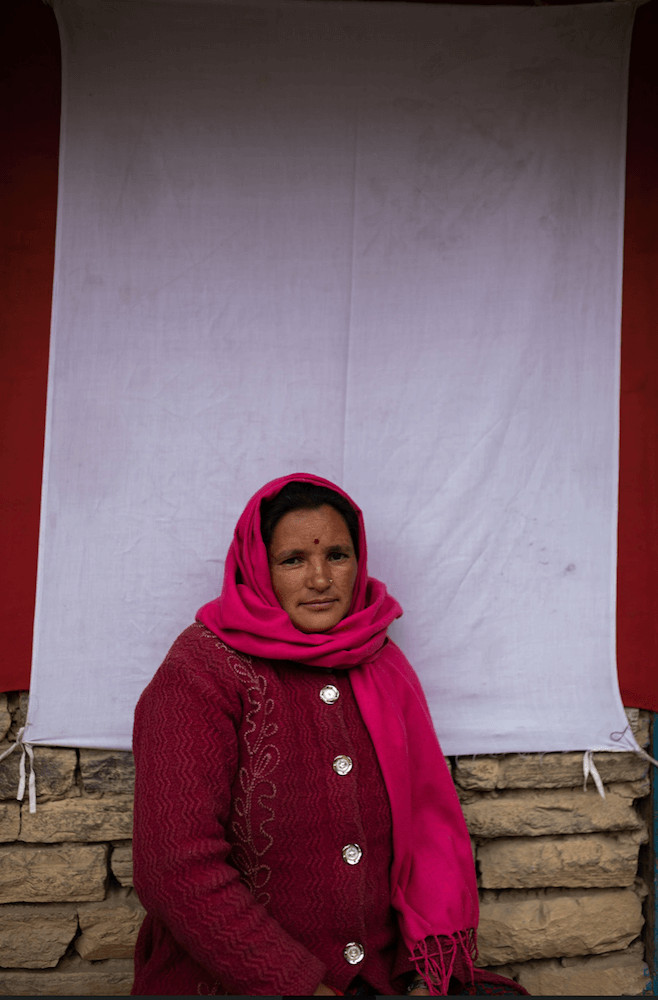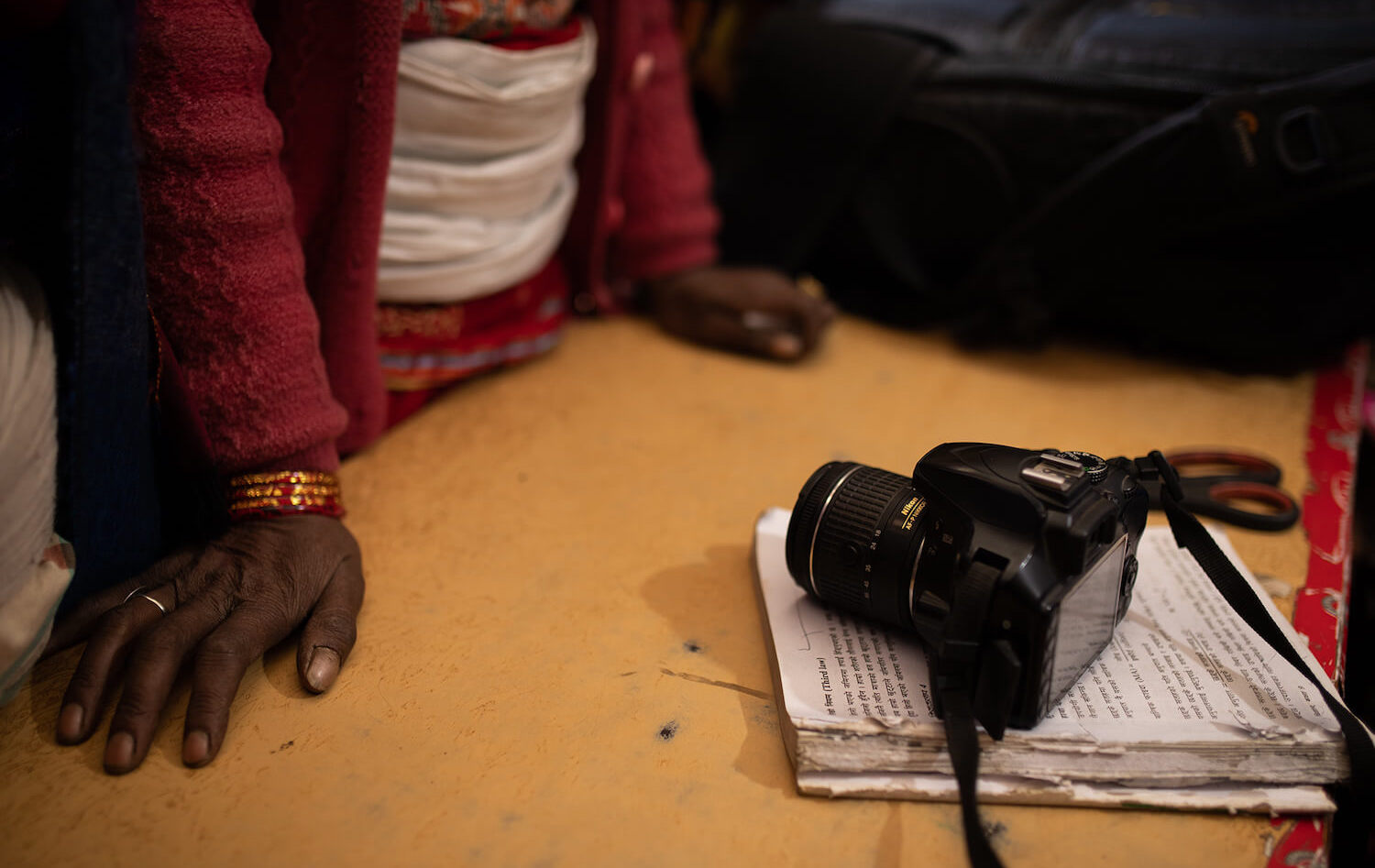Portrait of a photographer in rural Nepal

There is a wedding in progress in Jumla’s remote Sinja Valley, and even here guests with smartphones are taking TikTok videos and photos of the ceremony.
Even though everyone has a phone camera, the services of Nani Maya Buda are in high demand in the village of Gothijyula.


She is attending as the official photographer of the wedding with her Nikon D80 digital camera. Nani Maya never went to school, and cannot or read or write, but she is a self-taught professional photographer.
In this culturally conservative society, women are usually seen at home, tending livestock, or toiling in the fields. But Nani Maya stands out for her entrepreneurship and self-assurance in her new job.
"Could you please tilt your head a bit? Look at the camera. And we are done,” she tells a customer in her makeshift studio behind her electrical shop. She then takes the memory card to her laptop, edits the photos and prints them out.
It is a busy day at the studio, and customers are lining up outside for their turn. Some of them can be quite demanding, but Nani Maya is patient and tries to meet their requests.
Gothijyula village is a local hub in Sinja Valley with government offices, banks, and a rural market: residents of many surrounding villages travel there for official documents, to deposit money, and to do some shopping.
"I want sindur on my forehead," says one. "Make my skin look smooth and less dark,” demands another, "can you get rid of the moles in my face?"
Nani Maya replies: “I will make you look like a heroine in a Bollywood movie.” There are peals of laughter from the women.

Nani Maya Buda has been running her small shop here selling electrical goods for ten years. The shelves are filled with mobile phones, batteries, watches, flash-lights, and other goods. Seeing the demand for mugshots for citizenship certificates, bank forms and school admissions, her husband started the small photo studio.
After he got a salaried job, he got his wife to take over the shop, and also trained her to take and edit pictures in a rudimentary studio, which is just a white cloth hanging on the wall outside the shop where there is more light. Customers sit on an empty oil drum, while Nani Maya tilts their faces just right.






"I learned quickly, but made mistakes at first,” Nani Maya recalls. “Once I accidentally formatted the entire drive and lost all data, and sometimes I waste too much paper while printing photographs."
Nani Maya’s daughter died in an accident, and she now lives in a rented room with her husband and a younger son. The older son goes to school in Surkhet.



She is now well-known in the village, and the shop is usually crowded, especially at school admission time when she is taking pictures back-to-back of young students. She is thrilled that they have a chance at education that she never did.
During festivals and religious functions, people in this region dance the deuda, holding hands. Earlier, Nani Maya would have joined them, but these days she is too busy taking pictures and videos. Some of the dancers give her their phones to take pictures of them (below).

After a day at work in her shop studio when her husband come back from his job, Nani Maya turns to her household chores: collecting firewood to cook dinner.
"I am still learning to take better photos for my customers,” she says, as she inspects a visitor’s Canon EOS D7. “I want to save and buy a better camera like this someday.”
This photo story was made during the International Storytelling Workshop 2021, hosted by photo.circle (Nepal) in collaboration with Oslo Metropolitan University (Norway) and Pathshala South Asian Media Academy (Bangladesh).
writer




